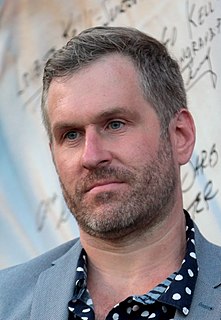A Quote by Milo Yiannopoulos
The alt-right for me is primarily a cultural reaction to the nannying and language policing and authoritarianism of the progressive left - the stranglehold that it has on culture.
Related Quotes
The usual terminology of political language is stupid. What is 'left' and what is 'right'? Why should Hitler be 'right' and Stalin, his temporary friend, be 'left'? Who is 'reactionary' and who is 'progressive'? Reaction against an unwise policy is not to be condemned. And progress towards chaos is not to be commended.
"Culture" is a new phenomenon, I believe. Culture is the new religion. People treat you based upon your culture. You are pushed to describe yourself by your culture: Kurdish or Turkish? Left wing or right wing? Progressive or conservative? Westerner or Easterner? European or Asian? So we have a label ready for you.
If you dropped me off a space platform onto the ground where a line was drawn, I would fall to the left side of it. I believe the difference between right and left is that the right, for the most part, the bulk of their philosophy is interested in property, and the rights of people to own property and gain and acquire and keep property. And I think on the left - though they blend and mix - on the left primarily you will find people who are more concerned about humans, and the human condition, and what can be done.
Tackling the environment should not be a licence to lecture people, because they have no excuse not to exercise, or eat their fruit and vegetables. Nannying - at least among adults - is likely to be counterproductive. Providing information is empowering; lecturing people is not. So, no excuses, no nannying.
The language of the culture also reflects the stories of the culture. One word or simple phrasal labels often describe the story adequately enough in what we have termed culturally common stories. To some extent, the stories of a culture are observable by inspecting the vocabulary of that culture. Often entire stories are embodied in one very culture-specific word. The story words unique to a culture reveal cultural differences.





































